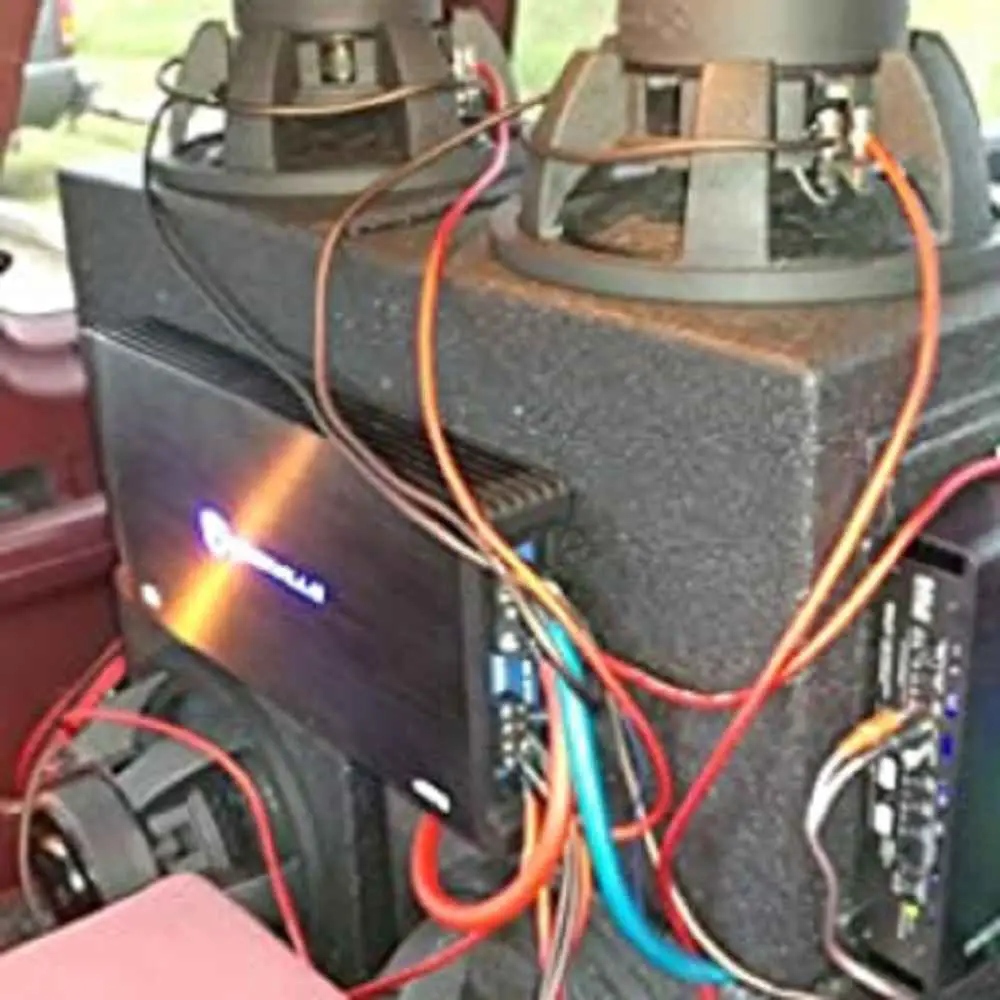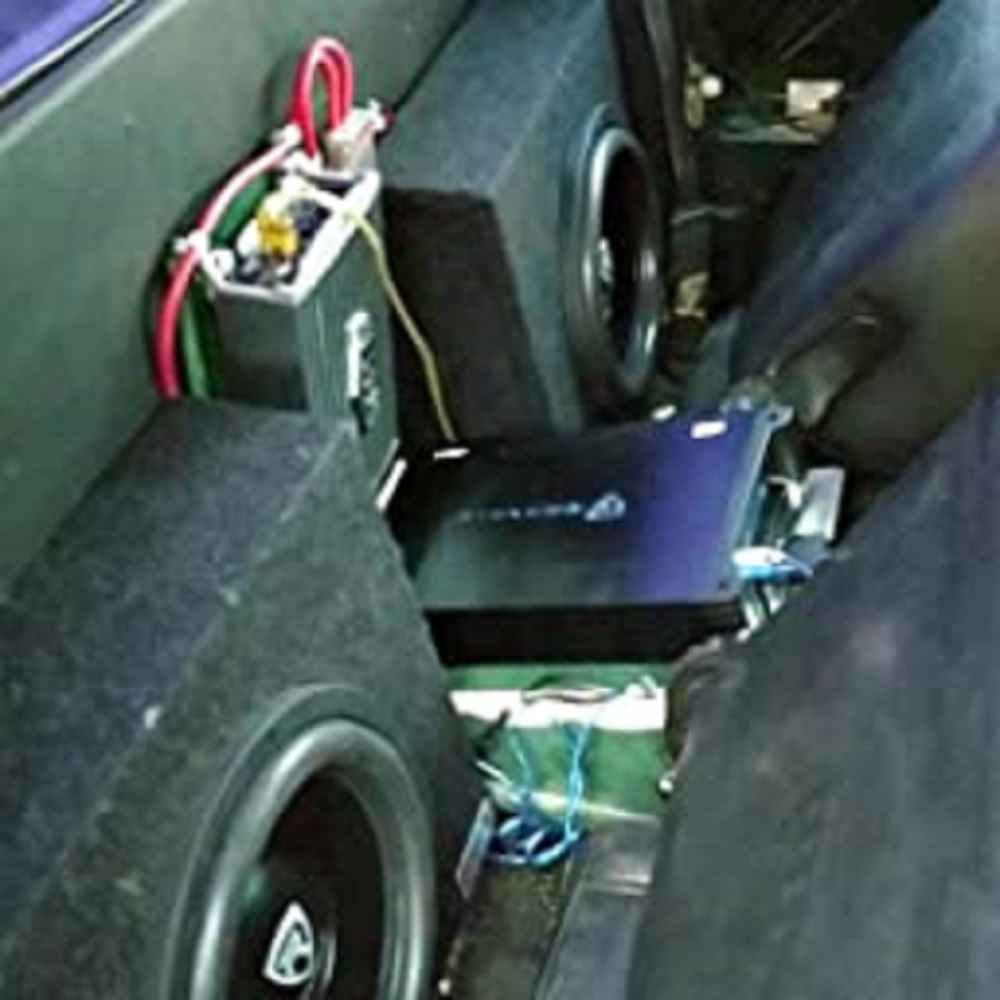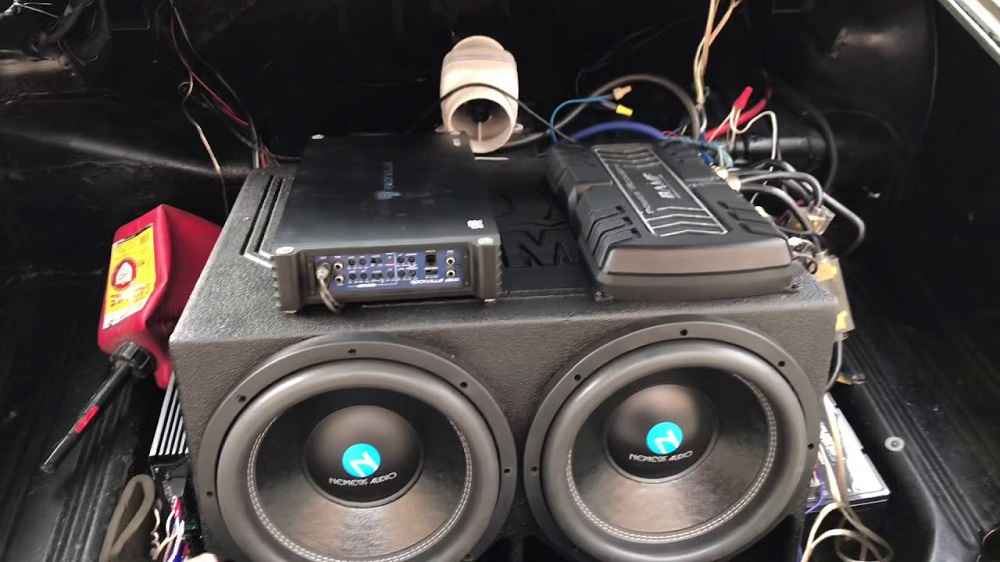A subwoofer is an essential component of a home theater or car audio system, designed to produce low-frequency sounds that enhance the overall audio experience.
It is crucial for a subwoofer to work properly and without any issues, as it can greatly impact the quality of sound being produced.

One common issue that people face with subwoofers is “popping” or “crackling” sounds, which can be distracting and even damaging to the subwoofer itself.
In this article, we will explore the reasons why your subwoofer is popping, how to diagnose the issue, and what solutions and preventative measures you can take to avoid it.
Causes of a Popping Subwoofer:
Speaker Impedance Mismatch:
A mismatch in the impedance between the subwoofer and the amplifier can cause a fluctuation in the current being supplied, resulting in a popping sound.
Overdriven Amplifier:
An amplifier that is driving too much power to the subwoofer can cause it to clip, resulting in a popping or crackling sound.
Loose or Damaged Speaker Connections:
Loose or damaged speaker connections can cause electrical interference, which can result in a popping sound.
Poor Ground Connection:
A subwoofer needs a strong ground connection to operate properly, and a weak or faulty ground can result in a popping sound.
Electromagnetic Interference:
Interference from other electronic devices can cause the subwoofer’s electrical signals to become disrupted, resulting in a popping sound.

Diagnosing Subwoofer Popping:
To diagnose the issue, it is important to follow a systematic approach to eliminate potential causes.
Check Speaker Impedance:
Checking the impedance of the subwoofer and the amplifier can help determine if a mismatch is the cause of the popping sound.
Test Amplifier Settings:
Checking the amplifier’s settings and adjusting them if necessary can help determine if an overdriven amplifier is the cause of the issue.
Examine Speaker Connections:
Checking the connections between the subwoofer and the amplifier can help determine if loose or damaged connections are causing the popping sound.
Verify Ground Connection:
Checking the subwoofer’s ground connection and ensuring it is secure can help determine if a poor ground connection is the cause of the issue.
Eliminate Electromagnetic Interference:
Moving the subwoofer away from other electronic devices or using an electromagnetic interference filter can help determine if interference is the cause of the popping sound.
Solutions for Subwoofer Popping:
Match the Impedance:
If a mismatch in impedance is the cause of the popping sound, adjusting the impedance of the subwoofer and the amplifier so that they match can help eliminate the issue.
Adjust Amplifier Settings:
If an overdriven amplifier is the cause of the issue, adjusting the amplifier’s settings so that it is not driving too much power to the subwoofer can help eliminate the problem.
Tighten or Replace Speaker Connections:
If loose or damaged connections are causing the popping sound, tightening or replacing the connections can help eliminate the issue.
Improve Ground Connection:
If a poor ground connection is the cause of the issue, improving the ground connection can help eliminate the problem.
Use Electromagnetic Interference Filters:
If interference from other electronic devices is causing the popping sound, using an electromagnetic interference filter can help eliminate the problem.
Prevention of Subwoofer Popping:
To avoid subwoofer popping, there are several preventative measures that can be taken:
Regular Maintenance:
Regularly checking the subwoofer and its connections and ensuring that everything is secure and in proper working order can help prevent the issue.
Proper Use and Handling:
Proper use and handling of the subwoofer, such as avoiding overdriving the amplifier or exposing it to interference, can help prevent the issue.
Proper Installation:
Installing the subwoofer and its components properly, such as ensuring a secure ground connection, can help prevent the issue.
Use Quality Components:
Using high-quality components, such as a subwoofer and amplifier that are specifically designed to work together, can help prevent the issue.

Conclusion
In conclusion, subwoofer popping is a common issue that can be caused by a variety of factors, including a mismatch in impedance, an overdriven amplifier, loose or damaged speaker connections, a poor ground connection, or electromagnetic interference.
By diagnosing the issue and following the appropriate solutions and preventative measures, the problem can be eliminated and the subwoofer can be restored to proper working order.
It is important to take proper care of the subwoofer and its components to ensure it operates properly and enhances the overall audio experience.
What is impedance and why does it cause subwoofer popping?
Impedance is a measure of electrical resistance and the opposition to the flow of current in an electrical circuit. If the impedance of the subwoofer and the amplifier do not match, it can cause the subwoofer to receive too much power and result in a popping sound.
How do I know if my amplifier is overdriven?
An overdriven amplifier can cause the subwoofer to produce a popping sound. To determine if an overdriven amplifier is the cause of the issue, check the amplifier’s settings and adjust them so that it is not driving too much power to the subwoofer.
If the problem persists, it may be necessary to seek professional assistance.
What are electromagnetic interference filters and how do they work?
Electromagnetic interference filters are devices that are designed to reduce electromagnetic interference from other electronic devices.
These filters work by blocking the interference and allowing only the desired signal to pass through to the subwoofer.
Can a poor ground connection cause subwoofer popping?
Yes, a poor ground connection can cause subwoofer popping. A poor ground connection can result in electrical interference that can cause the subwoofer to produce a popping sound.
Improving the ground connection by ensuring a secure and proper connection can help eliminate the problem.
Is it necessary to use high-quality components to prevent subwoofer popping?
While it is not necessary to use high-quality components to prevent subwoofer popping, using high-quality components, such as a subwoofer and amplifier that are specifically designed to work together, can help prevent the issue and ensure that the subwoofer operates properly.
It is important to use components that are compatible and meet the required specifications to ensure proper operation and enhance the overall audio experience.
